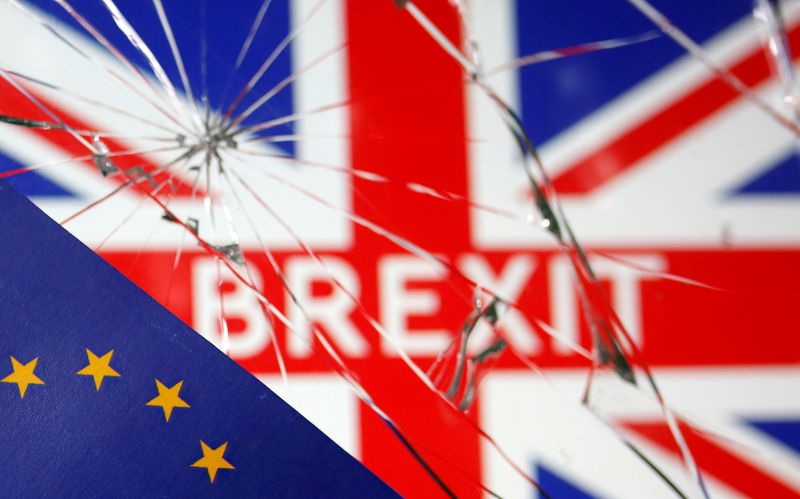(Reuters) – Britain and the European Union struck a trade deal on Thursday, agreeing the terms just days before the end of the Brexit transition period.
It averts a chaotic finale to four-and-half-years of fraught negotiations but the United Kingdom is still heading for a much more distant relationship with its biggest trade partner than almost anyone expected at the time of the 2016 Brexit vote.
MARKET REACTION:
STERLING – Sterling held on to Thursday’s gains, hovering near 2-1/2 year highs, after Britain said it had agreed the deal with the EU.
COMMENTS:
CHRISTOPHER DEMBIK, HEAD OF MACROECNOMIC ANALYSIS, SAXO BANK, PARIS
“After months of uncertainty, reason has prevailed! The recent UK-France travel ban, which certainly brought a dose of political realism in the negotiations by showing what could be the consequences of a no deal, along with Brexit fatigue ahead of the Christmas holidays have probably encouraged both parties to make major concessions on the last pending issues, notably fish quotas.
“We expect a surge in UK assets following the announcement of a Brexit deal. The UK stock market is very cheap – we estimate it is undervalued by roughly 20% – so this is certainly the right time for investors to enter the market and buy discounted shares of UK listed companies now that Brexit uncertainty has vanished.
“The sectors that were the most sensitive to Brexit, such as financials, real estate and construction, should experience the biggest surge in the coming days and weeks.”
MARCUS WIDEN, ECONOMIST EURO AREA AND SWEDEN, SEB, STOCKHOLM
“Today’s trade deal means that the UK is now leaving the EU’s customs union and single market on 31 December 2020. The ‘divorce’ has been complicated. It remains to be seen if the bloc and the UK will find the way back to each other. COVID-19 and lasting Brexit effects are expected to continue to weigh on the UK economic recovery in 2021 and the undervalued pound.”
(Reporting by Yoruk Bahceli and Carolyn Cohn; Editing by Toby Chopra)























